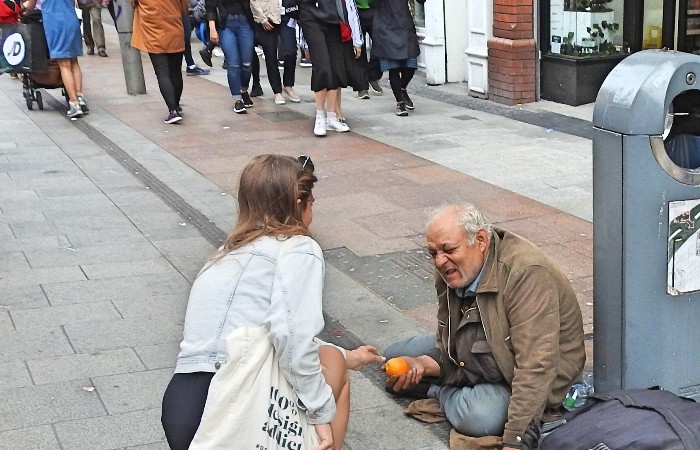RPS launches report on tackling health inequalities
In News
Follow this topic
Bookmark
Record learning outcomes
By Neil Trainis
The Royal Pharmaceutical Society has today launched a report examining how pharmacy teams can widen their understanding of health inequalities and support all patients to receive better care.
The report attempts to define health inequalities and clarify how they are manifested in day-to-day pharmacy practice by drawing on the experiences of patients as well as public health specialists, other professions, pharmacy organisations and focus groups.
One patient, Jenny Fulton from Glasgow, talked about the barriers she faced trying to access pharmacy services and insisted “the pharmacist saw me as nothing more than my script.” She said it was “highly likely” the assumptions the pharmacist made about her were unintentional but warned they might have driven another patient away.
The report is broken down into three broad areas. Firstly, it looks at how pharmacy teams can deepen their understanding of health inequalities not only by using demographic data on factors such as age, life expectancy, socioeconomic deprivation, employment, ethnicity, disability, avoidable mortality, disease prevalence or leading causes and faith but also through direct engagement with people.
The report encourages pharmacy teams to improve their understanding of inequalities by talking to local community or faith groups as well as patients.
“The richness of understanding you gain from hearing from someone living in poverty every day is significantly greater than reading about socio-economic data. Similarly, speaking with someone of a different faith can transform your understanding of cultural differences,” the report said.
Pharmacists should then consider who uses their services, whether they are reaching the entire local population and if not, how people on the periphery of society, such as the homeless, travelling communities or refugees, can access them.
The report also attempts to underline how unconscious bias “may be expressed in the services” pharmacies provide, “potentially making patients hesitant to use services or even driving them away.”
“Linked with this is stigmatisation of some groups of vulnerable individuals using pharmacy services, for example, people who use drugs or who are homeless,” it said.
Secondly, the report attempts to get pharmacy teams to understand and improve the pharmacy’s culture by posing questions such as are people welcomed, are they shamed, are people comfortable asking for help, are staff attitudes patronising and oppressive and is the pharmacy team actively reaching out?
“Certain groups of people and those with specific health conditions, such as people who are homeless or from traveller communities, and people who use drugs, are sometimes made to feel stigmatised when trying to access health services. The result of this is that they do not access services,” the report said.
It suggested pharmacy teams can undertake training in trauma care to recognise “the impact trauma has on an individual” so they can adapt “the provision of care to enable trust, reduce barriers and minimise distress.”
Thirdly, the report looks at ways to improve structural barriers, including embedding health inequalities education at undergraduate and postgraduate level and making protected learning time “available to all pharmacists in all sectors.”
“Education should include causes of inequalities, how inequalities can be tackled, unconscious bias, trauma-informed practice, inclusive practice, communication skills, kindness and empathy training, shared decision-making and health literacy,” the report said.

